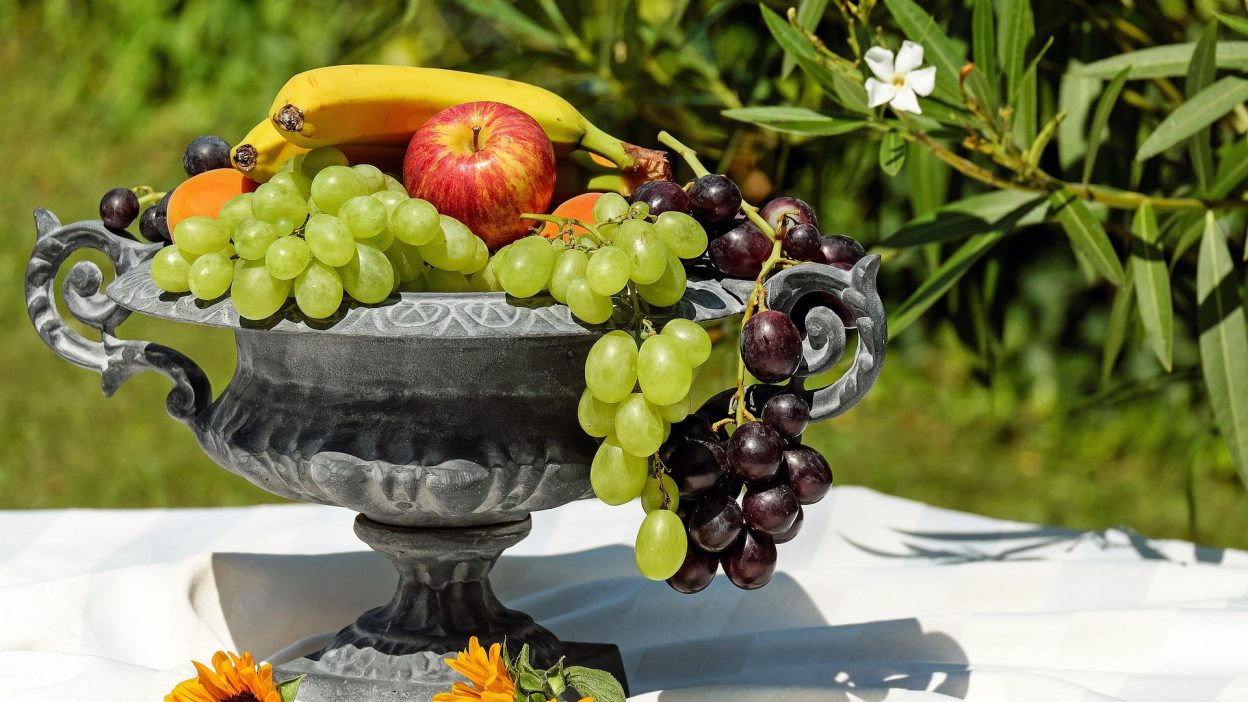Tired of throwing away fruits and vegetables that spoil too quickly?
Learn 25 expert-backed storage hacks to keep your produce fresh for weeks—even months! Reduce waste, save money, and enjoy fresher food with these timeless kitchen tricks.
Introduction
Have you ever bought fresh fruits and vegetables, only to find them wilted, mouldy, or mushy within days? Food waste is a major issue, and improper storage is often the culprit. But don’t worry—by following a few simple storage techniques, you can extend the shelf life of your produce significantly.
In this guide, we’ll share 25 proven methods to keep your fruits and vegetables fresh for longer, helping you save money and reduce waste.
1. Keep Your Fridge Clean
A dirty fridge can harbour mould spores and bacteria, causing your produce to spoil faster. Wipe down shelves and drawers regularly to prevent contamination.
2. Store Onions in Nylon Stockings
To prevent moisture buildup, keep onions in a cool, dark place. Storing them in nylon stockings with knots separating each one can extend their life up to 8 months!
3. Keep Garlic in a Dark, Dry Place
Whole garlic bulbs last up to 2 months in a paper bag or airtight container. Once separated into cloves, they spoil within 3-10 days.
4. Treat Herbs Like Flowers
Cilantro, parsley, basil, and asparagus stay fresh longer when stored in a glass of water at room temperature—just like fresh-cut flowers.
5. Store Potatoes Correctly
Avoid plastic bags; instead, use paper or mesh bags. You can also keep them in a ventilated box lined with newspaper to prevent sprouting.
6. Ripen Avocados Faster with Newspaper
Wrap avocados in newspaper and place them in a paper bag to ripen within 3-5 days. Want it even faster? Add a banana, and it’ll ripen in just 2 days!
7. Never Store Tomatoes in the Fridge
Cold temperatures make tomatoes lose their flavour and texture. Instead, store them at room temperature to keep them fresh for up to 2 months, depending on ripeness.
8. Keep Mushrooms Dry
Moisture causes mushrooms to rot quickly. Store them in a paper bag with a few parsley sprigs to prevent spots and keep them fresh.
9. Disinfect Strawberries with Vinegar
Before storing, soak strawberries in a 1:2 mixture of white vinegar and water. Remove any mouldy berries to prevent the spread. For long-term storage, freeze them in an airtight bag for up to 4 months.
10. Keep Greens Fresh for Two Weeks
After washing lettuce, spinach, or collard greens, dry them completely and store them in an airtight container with a paper towel to absorb excess moisture.
11. Preserve Half a Lemon
If you only use part of a lemon, prevent it from drying out by wrapping it in aluminium foil or sprinkling salt on the cut surface.
12. Stop Avocados from Browning
To prevent cut avocados from turning brown, sprinkle the pulp with lemon juice, brush it with oil, or store it with onions.
13. Keep Peeled Potatoes from Darkening
Submerge peeled potatoes in a bowl of water with a few drops of vinegar to stop them from turning grey.
14. Freeze Ripe Bananas for Smoothies
Peel, cut, and store ripe bananas in an airtight bag in the freezer. They’ll last up to 3 months and make perfect smoothie ingredients!
15. Make Herb Butter or Oil Cubes
Chop herbs like cilantro, basil, and parsley, place them in ice cube trays, and pour in melted butter or olive oil. Freeze for easy use in cooking.
16. Store Citrus Fruits on the Counter
Keep oranges, lemons, and limes in a well-ventilated space at room temperature to reduce the risk of mould.
17. Keep Bell Peppers Crisp in Paper Bags
Store whole bell peppers in paper bags to reduce moisture buildup. If cut, wrap them in a paper towel and place them in an airtight container.
18. Slow Banana Ripening with Foil
Bananas release ethylene gas, which speeds up ripening. Wrap the stems with plastic wrap or foil to slow the process.
19. Avoid Heat Sources
Fruits and vegetables ripen faster when exposed to heat or gas from stoves, toasters, or ovens. Keep them in a cool spot.
20. Store Potatoes with Apples
Apples release natural chemicals that prevent potatoes from sprouting. However, avoid storing them with onions, as they can make each other spoil faster.
21. Keep Celery Crisp with Tin Foil
Wrap celery stalks in aluminium foil before placing them in the fridge. This method keeps them fresh and crunchy for up to a month!
22. Freeze Ginger and Turmeric
Freezing ginger and turmeric extends their shelf life and makes them easier to grate for cooking.
23. Use Glass Containers Instead of Plastic
Plastic containers can contain harmful chemicals that speed up spoilage. Store food in glass containers or Mason jars for freshness.
24. Trim Carrots to Prevent Wilting
Carrot greens draw out moisture, causing them to go limp. Cut off the tops and store carrots in an airtight bag. If peeled, store them in water.
25. Never Refrigerate Cucumbers
Cucumbers spoil faster in cold temperatures and are sensitive to ethylene gas from bananas, melons, and tomatoes. Store them at room temperature.
Final Thoughts
By following these simple food storage hacks, you can extend the shelf life of your fruits and vegetables, reduce food waste, and save money. Small adjustments in storage methods make a huge difference in keeping your groceries fresh!Do you have any favourite food storage tricks? Share them in the comments! And if you found this guide helpful, share it with a friend who could use these tips.




